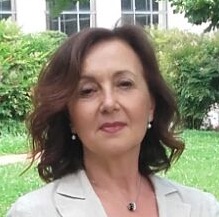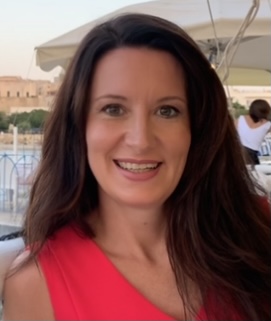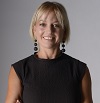Studying at the University of Verona
Here you can find information on the organisational aspects of the Programme, lecture timetables, learning activities and useful contact details for your time at the University, from enrolment to graduation.
Academic calendar
The academic calendar shows the deadlines and scheduled events that are relevant to students, teaching and technical-administrative staff of the University. Public holidays and University closures are also indicated. The academic year normally begins on 1 October each year and ends on 30 September of the following year.
Course calendar
The Academic Calendar sets out the degree programme lecture and exam timetables, as well as the relevant university closure dates..
| Period | From | To |
|---|---|---|
| Sem. 1A | Sep 21, 2020 | Oct 31, 2020 |
| Sem. 1B | Nov 9, 2020 | Jan 9, 2021 |
| Sem. 2A | Feb 15, 2021 | Apr 1, 2021 |
| Sem. 2B | Apr 14, 2021 | May 29, 2021 |
| Session | From | To |
|---|---|---|
| Sessione d'esame invernale | Jan 14, 2021 | Feb 13, 2021 |
| Sessione d'esame estiva | Jun 7, 2021 | Jul 24, 2021 |
| Sessione d'esame autunnale | Aug 23, 2021 | Sep 18, 2021 |
| Session | From | To |
|---|---|---|
| Sessione di laurea estiva | Jul 5, 2021 | Jul 10, 2021 |
| Sessione di laurea autunnale | Nov 8, 2021 | Nov 13, 2021 |
| Sessione di laurea invernale | Mar 28, 2022 | Apr 1, 2022 |
| Period | From | To |
|---|---|---|
| Festa di Ognissanti | Nov 1, 2020 | Nov 1, 2020 |
| Festa dell'Immacolata | Dec 8, 2020 | Dec 8, 2020 |
| Vacanze di Natale | Dec 24, 2020 | Jan 6, 2021 |
| Vacanze di Pasqua | Apr 2, 2021 | Apr 6, 2021 |
| Festa della liberazione | Apr 25, 2021 | Apr 25, 2021 |
| Festa del lavoro | May 1, 2021 | May 1, 2021 |
| Festa del Santo Patrono | May 21, 2021 | May 21, 2021 |
| Festa della Repubblica | Jun 2, 2021 | Jun 2, 2021 |
| Vacanze estive | Aug 9, 2021 | Aug 15, 2021 |
Exam calendar
Exam dates and rounds are managed by the relevant Humanistic Studies Teaching and Student Services Unit.
To view all the exam sessions available, please use the Exam dashboard on ESSE3.
If you forgot your login details or have problems logging in, please contact the relevant IT HelpDesk, or check the login details recovery web page.
Should you have any doubts or questions, please check the Enrollment FAQs
Academic staff
 cristina.bertazzoni@univr.it
cristina.bertazzoni@univr.it
 andrea.ghidini@univr.it
andrea.ghidini@univr.it
 stefania.pontrandolfo@univr.it
stefania.pontrandolfo@univr.it
 marco.ubbiali@univr.it
marco.ubbiali@univr.it
Study Plan
The Study Plan includes all modules, teaching and learning activities that each student will need to undertake during their time at the University.
Please select your Study Plan based on your enrollment year.
1° Year
| Modules | Credits | TAF | SSD |
|---|
2° Year activated in the A.Y. 2021/2022
| Modules | Credits | TAF | SSD |
|---|
| Modules | Credits | TAF | SSD |
|---|
| Modules | Credits | TAF | SSD |
|---|
| Modules | Credits | TAF | SSD |
|---|
Legend | Type of training activity (TTA)
TAF (Type of Educational Activity) All courses and activities are classified into different types of educational activities, indicated by a letter.
Theories and methods of inclusive education (2021/2022)
Teaching code
4S003377
Teacher
Coordinator
Credits
6
Language
Italian
Scientific Disciplinary Sector (SSD)
M-PED/03 - METHODOLOGIES OF TEACHING AND SPECIAL EDUCATION
Period
Sem. 2A dal Feb 14, 2022 al Mar 26, 2022.
Learning outcomes
Knowledge and understanding 1. Knowledge of the fundamental core of international documents in the field of inclusive education, and understanding in depth the concrete problems and the resources of the inclusive educational action in the scholastic, work and social context. 2. Knowledge and understanding of the theoretical and methodological references of the inclusive approach in education. 3. The difference between the different meanings and the different modalities of inclusive educational action in relation to the contexts and characteristics of the subjects, with particular attention to inclusive processes concerning people with disabilities. Applying knowledge and understanding 1. Knowing how to analyze the quality of the inclusion of a school and extracurricular context, using methodologies and tools suitable for the purpose such as, for example, the “Index for inclusion”. 2. Knowing how to analyze and assess the inclusive attitude of a context in relation to the particular needs of young people and adults with special needs, with the aim of developing pedagogical designs suitable for pursuing the highest possible levels of inclusion, working and / or social. 3. To learn the ways through which it is possible to design an educational intervention, of an inclusive type, starting from the ability to find relevant and effective sources through the consultation of the reference scientific literature.
Program
The inclusive theoretical and methodological paradigm;
The outcomes of the latest researches in Special Education in an inclusive prospect;
The passage from the school integration of the students with a certified handicap to the model of Inclusive Education;
Special education needs and inclusive prospect;
The capacitive co-design;
The ICF logic (OMS, 2001) in the prevention of disabilities from the analysis of functioning to the inclusive actions;
From the ICF functioning profile to educational planning.
Within the course, different types of didactic methods will be activated:
- frontal and / or distance lessons;
- Reading and comment of excerpts;
- Case studies;
- Exercises;
- Vision of short movies;
- Experiences from the professional context.
Exam books:
Agenzia Europea per i Bisogni Educativi Speciali e l’Istruzione Inclusiva, Cinque messaggi chiave per l’educazione inclusiva. Dalla Teoria alla Prassi, Odense, Danimarca 2014
https://www.european-agency.org/sites/default/files/Five_Key_Messages_for_Inclusive_Education_IT.pdf
Lascioli Angelo, Verso l’Inclusive education, Edizioni del Rosone, Foggia 2014.
Lascioli Angelo, Pasqualotto Luciano, Il Piano Educativo Individualizzato su base ICF, Carocci, Roma, 2021.
Marchisio Cecilia Maria, Percorsi di vita e disabilità. Strumenti di coprogettazione, Carocci, Roma, 2019.
Other study material (slides, videos and scientific articles) will be uploaded through the e-learning platform.
Bibliography
Examination Methods
The assessment for learning will take place through a written examination paper that will consist of presenting a series of closed questions and open questions concerning the topics discussed during the course.
The following assessment criteria will be considered:
- Including the relevant elements that are the basis of the main theories and the main documents relating to inclusion;
- Including the elements that characterize inclusive didactic action;
- Being able to expose their arguments strictly and in a limited time by identifying and selecting the essential elements for exposure;
- Being able to analyse critically the case studies and the experiences presented.
"In relation to the situation resulting from the Coronavirus emergency, the examination methods reported above may undergo changes".
Type D and Type F activities
Modules not yet included
Career prospects
Module/Programme news
News for students
There you will find information, resources and services useful during your time at the University (Student’s exam record, your study plan on ESSE3, Distance Learning courses, university email account, office forms, administrative procedures, etc.). You can log into MyUnivr with your GIA login details: only in this way will you be able to receive notification of all the notices from your teachers and your secretariat via email and soon also via the Univr app.
Student mentoring
Graduation
Documents
| Title | Info File |
|---|---|
|
|
pdf, it, 99 KB, 13/10/23 |
|
|
pdf, it, 101 KB, 10/04/24 |
List of theses and work experience proposals
| theses proposals | Research area |
|---|---|
| Psicoanalisi | Psychology - Psychology, Psychoanalysis |
Gestione carriere
Linguistic training CLA
Practical information for students
Documents
| Title | Info File |
|---|---|
|
|
pdf, it, 325 KB, 02/05/23 |
|
|
pdf, it, 212 KB, 02/05/23 |
|
|
pdf, it, 131 KB, 02/05/23 |
Stage e Tirocini
Per le altre attività formative (crediti F) sono previsti 9 cfu (pari a 225 ore) da acquisire solamente attraverso l’attività di tirocinio obbligatoria, a sua volta suddivisa in:
- tirocinio indiretto (1 cfu: 25 ore di frequenza obbligatoria in università per il 75%) in preparazione dell’attività formativa sul campo;
- tirocinio diretto (8 cfu), da svolgersi presso enti convenzionati.
L’ordinamento didattico della LM in Scienze pedagogiche prevede che il tirocinio indiretto a frequenza obbligatoria si svolga in università per il 75% nel secondo anno (1 CFU: 25 ore).
Il tirocinio indiretto consiste in un accompagnamento iniziale delle/degli studenti da parte dei tutor attraverso un percorso di formazione della durata di 25 ore.
La finalità di questo percorso è quella di preparare le/gli studenti alla particolare forma di apprendimento costituita dal tirocinio, dotandoli di conoscenze e strumenti adeguati a osservare, comprendere e rielaborare criticamente l’esperienza di tirocinio nei servizi educativi e ad affrontare il tirocinio negli enti con metodo e consapevolezza.
Il percorso, da attuare in gruppi da 20-25 persone sotto la supervisione di un tutor proveniente dal mondo professionale di educatori e pedagogisti, risponde alle esigenze costantemente espresse sia dalle/dagli studenti stessi sia dalle parti sociali che dai referenti degli enti convenzionati.
Nuove Linee Guida per il tirocinio di Scienze pedagogiche.
- Tutte le informazioni in merito agli stage per futuri studenti sono disponibili alla pagina Stage e tirocini.
- Tutte le informazioni in merito agli stage per studenti iscritti sono pubblicate in MyUnivr - come fare per - stage e tirocini.
- Tutte le informazioni in merito agli stage per le aziende sono disponili alla pagina Stage e tirocini per azienze.

 +39 045 802 8459
+39 045 802 8459






















